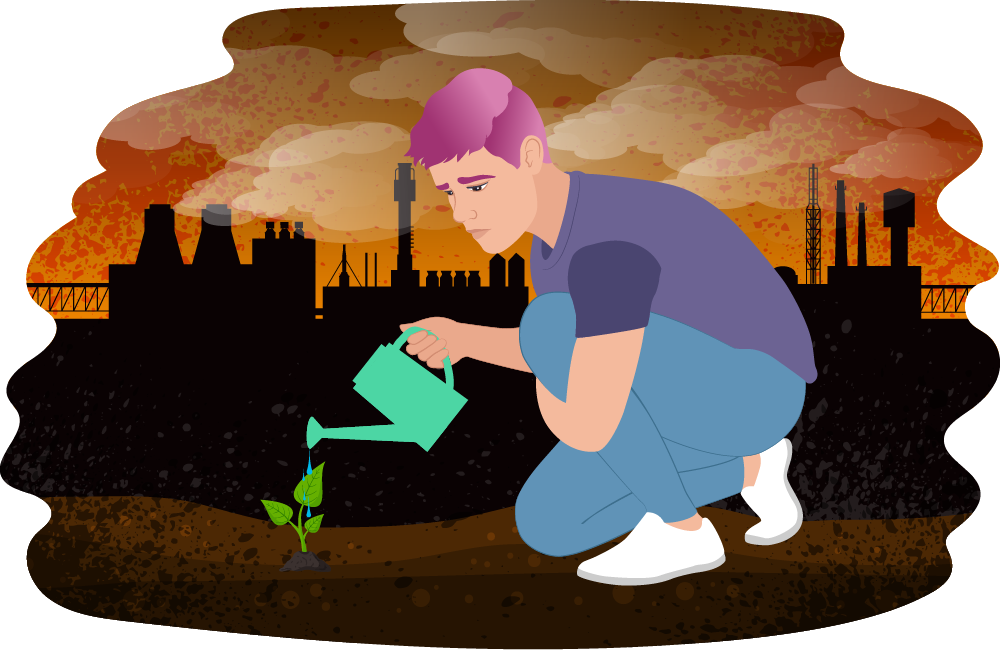How to manage anxiety
Anxiety can feel overwhelming, but there are some simple steps you can ...
READ MEIt’s normal to be worried about the environment and the things you see on the news. Let’s look at ‘eco-anxiety’ and how to cope with it.

People experiencing anxiety related to the environment might be concerned about different things, such as the impact on wildlife, or the future habitability of the planet.
Anxiety might also affect people differently, e.g. stress, feeling depressed, feelings of grief, or even anger.
Kids Helpline has a ‘Green Team’, a group of counsellors and staff who are dedicated to making Kids Helpline a more environmentally friendly service. If you have suggestions for us, you can send them through here.
Coping strategies are all about regulating your thoughts and feelings, so you can better manage your own behaviours. Here are some things that might help:
Find ways to manage stress/anxiety. Anxiety can be overwhelming. It can make you feel hopeless or lead to inaction. Managing your stress and anxiety isn’t just good for you – it’s also good for the environment, because you are better able to take action if you look after your own wellbeing.
Get inspired. If you are feeling down, it can sometimes help to find out about many of the amazing initiatives that are happening around the world. You might follow a start-up that is finding ways to remove carbon from the atmosphere, or make a donation to a company that is bringing solar energy to developing nations.
Look after yourself. It’s hard to look after the planet if you are tired or rundown. Making self-care a priority can reduce stress/anxiety levels too.
Focus on what you can control. It can be easy to feel overwhelmed about things beyond your control. The good news is that if everyone focuses on a few things they can do to make a difference, it all adds up.
Find purpose. Trying to make a difference and feeling like it’s not working can be really disempowering. But real, positive change in often hard-won. One way to stay resilient is to focus on the end goal, or the ‘why’ of any action you take.
Be a role model. You can’t control others and it can be upsetting to see family, friends, companies or even governments take action you disagree with. Changing attitudes is all about leading by example. The more people who do it, the more it will become the ‘norm’.
Be prepared for setbacks. Permanent change isn’t just progress. It also includes setbacks. The only time setbacks are permanent is if we accept them and give up. It’s ok to feel frustrated or upset about setbacks, but remember that it’s the comeback that counts!
Manage media exposure. We all need a mental break sometimes. If you are feeling overwhelmed, it’s ok to reduce your exposure to media or do something that distracts you/takes your mind off it to de-stress.
How to manage anxiety
Anxiety can feel overwhelming, but there are some simple steps you can ...
READ MECoping strategies
If you are feeling stressed, anxious or just struggling to deal, there ...
READ MEWhy do I freak out when I’m stressed?
To work out why you're feeling anxious, it can be really helpful ...
READ MEYour brain when you're anxious
The brain is very complex! But let’s simplify things a bit, ...
READ METalking helps! We’re here for you.
No problem is too big or too small.
We're here 24 hours a day, 7 days a week